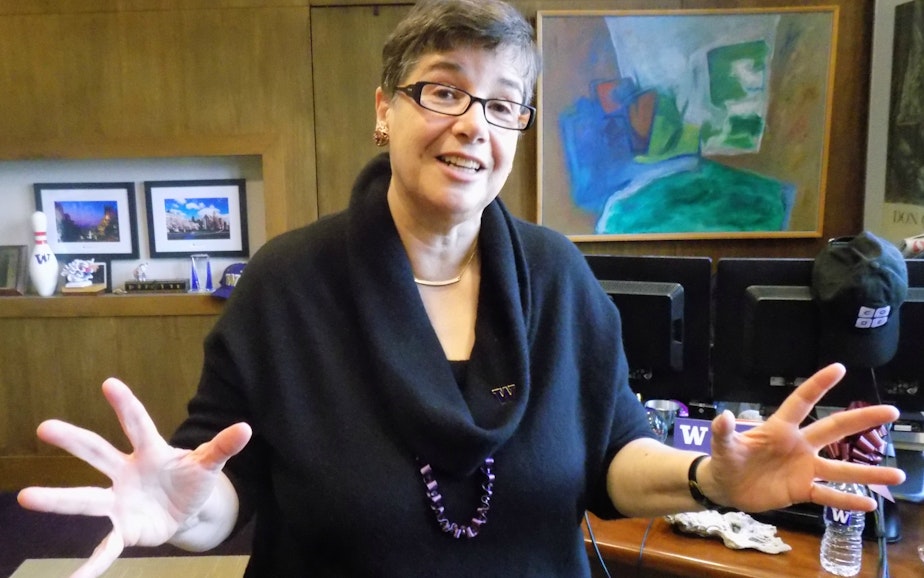UW President Cauce: Skepticism is critical to science, but don't be skeptical about science itself

University of Washington President Ana Mari Cauce says the federal budget cuts being proposed by President Donald Trump would be devastating for science.
So she's speaking up for science, and she told KUOW's David Hyde that scientists should, too:
If we want the public to support us, we need to be telling how our research impacts people's lives.
Some faculty are better at it than others. But I think that most of our faculty can actually explain their work in language that is clearer, using stories that are clearer. And we're trying to create the kind of environment where our faculty is rewarded and is given the tools that they need to be able to communicate about their work again so that the public will support it.
KUOW: What concerns you about the kind of skepticism we're seeing towards basic scientific knowledge at this point. What are you seeing, and what do you think we should do about it?
Skepticism is critical to science, but we shouldn't be skeptical about science itself and that I think is more the problem.
Science is about withstanding really hard scrutiny. But when we start doubting the importance of science itself, that's hard to understand when there is just so much clear evidence of what science has done and the key role that it plays.
Science shouldn't be a partisan issue. That's just not what science is all about. In fact one of the things I love about science is that it is a way of communicating across all kinds of boundaries.
I think the other thing that sometimes is difficult in the translation is that for example in journalism you always want to present both sides of the story. Sometimes the bulk of the science is pretty clear and it's not like there are really two equal sides — maybe at the beginning of understanding an issue.
But I think that the preponderance of science is in one direction as to what degree climate change is being fueled by things that humans do. I mean there's room for some debate as to what degree humans are pushing it. But there's not a lot of room for argument that climate change is happening and when we're arguing about, is it happening at all? Just look around you.
KUOW: There's also a March for Science coming up this weekend. What do you think about faculty participating in that?
I think that our faculty should and does get involved in the world in various ways and the March for Science is just one more way in which our faculty can be involved talking about their work and making it clear that their work is important.
Some of our faculty will choose to participate, and some will maybe spend that weekend working in the labs or working on a paper.
That's entirely their choice.

